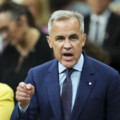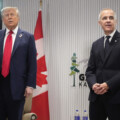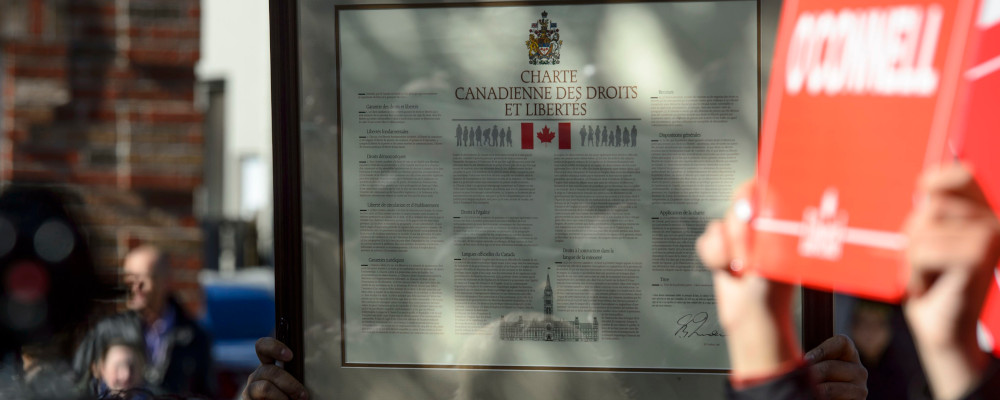The vaccine mandate chapter of the pandemic has fully arrived in Canada. What began as a trickle in late summer is fast becoming a flood of requirements for Canadians to be vaccinated in order to participate in various activities and sectors of society.
It is troubling to witness governments barely mention the Charter of Rights and Freedoms when they announce these mandates, if they mention it at all. It is also troubling that this behaviour is not new. Governments have largely avoided Charter talk during the pandemic, seemingly for optics and to avoid problems of public perception.
In fairness, this approach is understandably tempting. Lockdowns, quarantines, and other public health measures collectively breach — or at least arguably breach — an assortment of Charter guarantees: freedom of peaceful assembly, mobility rights, religious freedom, and respect for liberty and security of the person according to principles of fundamental justice come quickly to mind.
Strong cases could be made that some of these measures not only breach rights and freedoms in the Charter but lack sufficient justification for doing so. Such measures, in other words, are unconstitutional and therefore illegal.
The hotel quarantine for persons entering Canada by plane was widely criticized for overreach. The ban on worship for several months in British Columbia while many other activities continued in-person was never credibly explained. And using curfews to fight COVID-19, as Quebec did earlier this year, may be far less effective than first meets the eye. Does the virus only come out at certain hours?
Without taking anything away from the tremendous success of the vaccines or from the imperative of getting vaccinated, a strong case could also be made that some of the vaccine mandates in Canada have features which render them unconstitutional as well.
How is it justifiable to require public servants who will not work in the office for the foreseeable future — perhaps not until well into next year — to take an injection or effectively lose their job?
The federal government has announced that its employees must be vaccinated by October 29th. If an employee is not vaccinated, they will be placed on unpaid administrative leave. This mandate applies even if the employee is working from home. How is it justifiable to require public servants who will not work in the office for the foreseeable future — perhaps not until well into next year — to take an injection or effectively lose their job?
As for vaccine mandates for activities such as dining out, a glaring constitutional defect exists if, as is the case in British Columbia, they do not accommodate individuals who cannot be vaccinated for legitimate medical reasons. This segment of the population is small, but that statistic is legally irrelevant. In fact, the negligible number of individuals who would qualify for this exemption makes the refusal to grant it all the more baffling. Even if no one were eligible for this exemption today, it should still be on the books in case someone develops a medical condition which renders them ineligible for vaccination.
Canada is one of the most vaccinated countries in the world, an achievement that will only be sustained once younger Canadians can get the shot. We firmly subscribe to the principle that medical interventions must not be coerced, even indirectly. And we normally do not require vaccination where its necessity is questionable, as seems to be the case for the roughly 1.7 million Canadians who have at least some degree of natural immunity from COVID-19 after recovering from the virus.
With these factors in mind, the legal justification for the patently flawed aspects of the vaccine mandates is tenuous at best. Bluntly put, many vaccine mandates are ripe for constitutional challenge on account of enabling unjust discrimination as well as for denying liberty and security of the person in ways that are overbroad, arbitrary, and unduly coercive.
So far, courts have been deferential when evaluating the constitutionality of state action taken in response to COVID-19. But this posture will not last forever. Telling the court that we are living through a global pandemic does not have the same purchase today as it did nineteen months ago. We have learned a lot in that timespan, and a lot has changed.
Many believe that vaccine mandates are needed to achieve herd immunity or to tackle dire pandemic conditions in certain provinces. To these points, I would say – in keeping with what Gerard Kennedy has written in these pages – that there is a legal mechanism which enables governments to adopt vaccine mandates in a manner that is far more respectful of our supreme law than the current approach.
Governments should use the notwithstanding clause in the Charter to overcome questions about whether these mandates infringe certain Charter rights and freedoms. The imposition of drastic, extraordinary measures that a government believes are demanded by the common good is precisely the sort of rare scenario that the notwithstanding clause is meant to handle.
Acting as if vaccine mandates — as well as other pandemic measures we have endured — are mundane curtailments of fundamental rights is not merely false. It also cheapens these rights, setting a dangerous precedent for their future.
After nearly a year since the worldwide vaccine rollout began, what we have been told about the vaccines from day one has proven to be true. The vaccines are indeed safe and effective. They have even exceeded expectations, holding up against variants that did not exist when they were being developed. With each passing day, almost all the reasons that are cited by those who refuse to take the vaccine lose further traction. Frankly, and with all due respect, many of these reasons were absurd from the start.
But frustrating behaviour by some citizens amid very challenging circumstances does not entitle governments to bulldoze through our supreme law or the fundamental commitments that guard us from becoming a radically different kind of society.
This law and those commitments are not window dressing when things are fine and optional when times are tough. They are always foundational, and always mandatory. And, truth be told, it’s in the difficult moments — in times like the present — that we need the defining features of our society the most.
Recommended for You

Kirk LaPointe: B.C.’s ferry fiasco is a perfectly Canadian controversy

‘I want to make Canada a freer country’: Conservative MP Andrew Lawton talks being a newbie in Parliament, patriotism, and Pierre Poilievre’s strategy

The Notebook by Theo Argitis: Trump halts trade talks, Carney’s trade-offs and John McCallum’s legacy

The Weekly Wrap: The Liberals must abandon their internet regulation agenda




